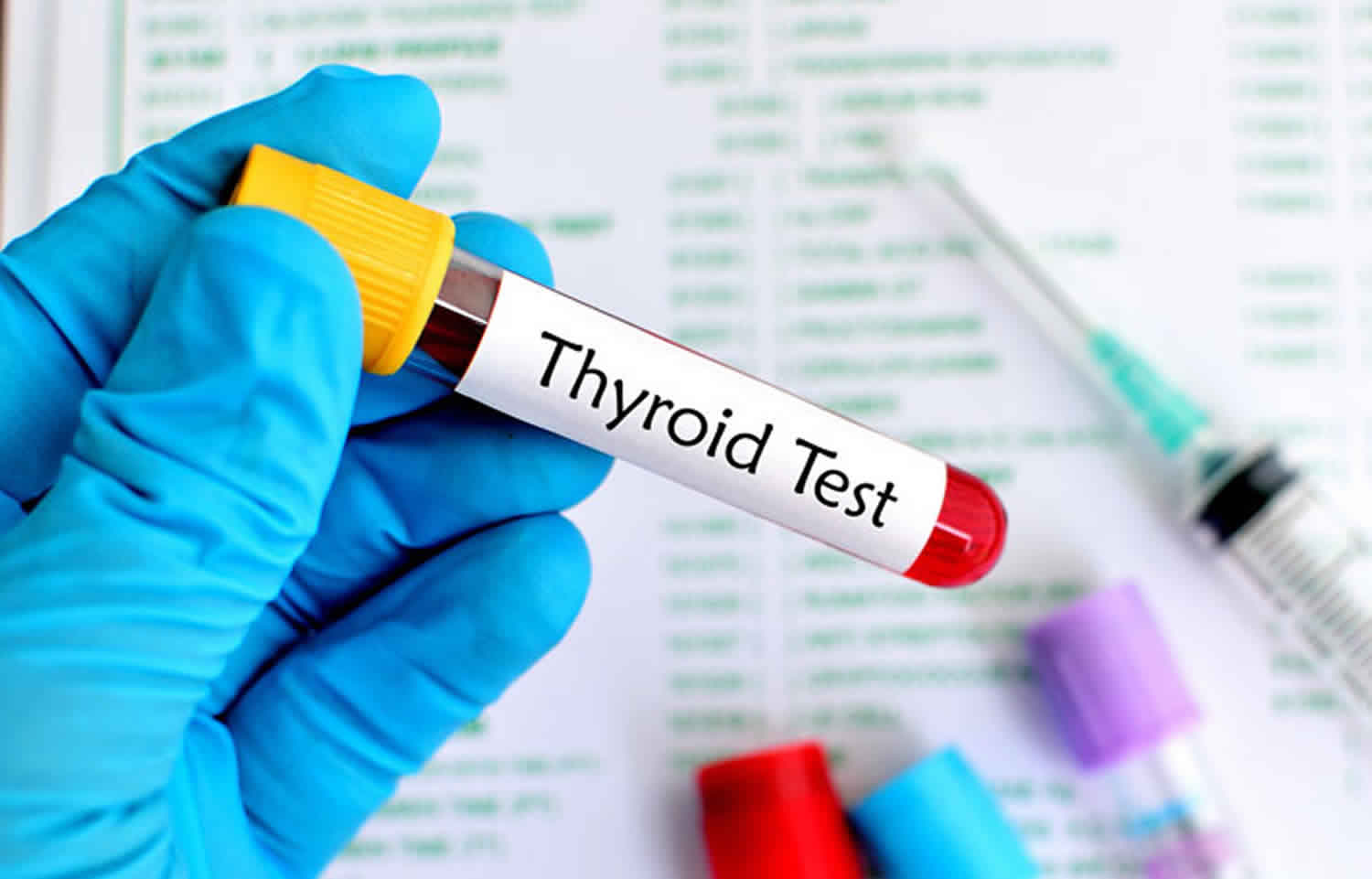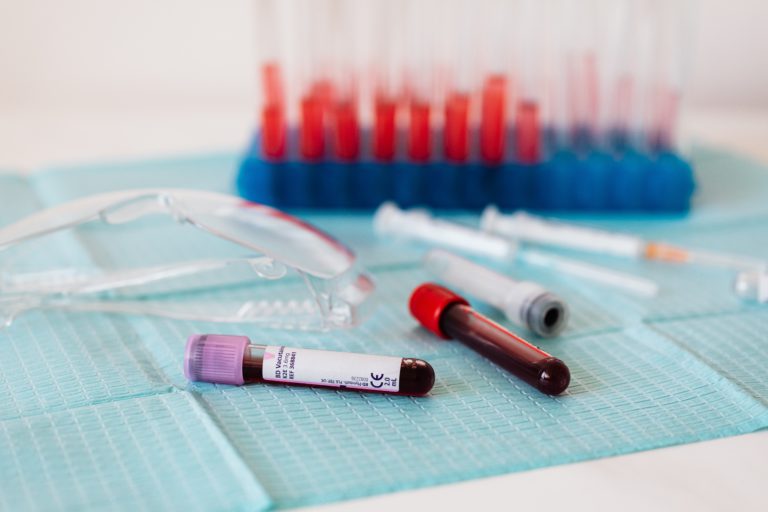
The thyroid panel test is a valuable diagnostic tool that helps assess the functioning of the thyroid gland. The thyroid gland, located in the neck, plays a crucial role in regulating metabolism, growth, and energy levels in the body. This article aims to provide a comprehensive guide to understanding the thyroid panel test, its significance, and the information it can reveal about thyroid health.
What is the Thyroid Panel Test?
The thyroid panel test is a comprehensive blood test that evaluates the levels of various hormones and antibodies related to thyroid function. It provides valuable insights into the overall health of the thyroid gland and helps diagnose thyroid disorders. The panel typically includes tests for thyroid-stimulating hormone (TSH), thyroxine (T4), triiodothyronine (T3), and thyroid antibodies.
Importance of Thyroid Health
The thyroid gland plays a crucial role in maintaining overall well-being.
- It regulates metabolism
- Body temperature
- Heart rate and
- Energy levels
Imbalances in thyroid hormone levels can lead to various health issues, including:
- Weight changes
- Mood swings
- Fatigue and more
Regular monitoring of thyroid health through the thyroid panel test is essential for early detection and management of thyroid disorders.
Where To Get Tested?
Say Goodbye To Waiting Rooms And Long Lines. Speedy Sticks offers at-home testing.
Common Thyroid Disorders
Two common thyroid disorders are hypothyroidism and hyperthyroidism:
Hypothyroidism
Hypothyroidism occurs when the thyroid gland does not produce enough thyroid hormones. This can lead to symptoms such as:
- Weight gain
- Fatigue
- Dry skin and
- Depression
The thyroid panel test helps identify low levels of thyroid hormones, aiding in the diagnosis and treatment of hypothyroidism.
Hyperthyroidism
Hyperthyroidism, on the other hand, is characterized by the overproduction of thyroid hormones. Symptoms include:
- Weight loss
- Increased heart rate
- Anxiety and tremors
The thyroid panel test can detect elevated levels of thyroid hormones, enabling prompt diagnosis and appropriate treatment.
Understanding the Thyroid Panel Test

The thyroid panel test consists of several components that provide valuable information about thyroid function and potential disorders. The following tests are commonly included:
TSH (Thyroid-Stimulating Hormone) Test
The TSH test measures the levels of thyroid-stimulating hormone in the blood. TSH is produced by the pituitary gland and stimulates the thyroid to produce thyroid hormones. Abnormal TSH levels can indicate an underactive or overactive thyroid.
T4 (Thyroxine) Test
The T4 test measures the levels of thyroxine, the main hormone produced by the thyroid gland. T4 plays a vital role in regulating metabolism. Abnormal T4 levels can indicate hypothyroidism or hyperthyroidism.
T3 (Triiodothyronine) Test
The T3 test measures the levels of triiodothyronine, an active form of thyroid hormone. T3 is responsible for controlling metabolism and energy production in the body. Abnormal T3 levels can provide insights into thyroid disorders.
Thyroid Antibody Tests
Thyroid antibody tests help identify autoimmune thyroid disorders, such as Hashimoto’s disease or Graves’ disease. These tests detect the presence of specific antibodies that attack the thyroid gland.
Preparation for the Thyroid Panel Test

Before undergoing a thyroid panel test, it is essential to follow specific guidelines:
- Inform your healthcare provider about any medications or supplements you are currently taking.
- Some medications, such as thyroid medications and corticosteroids, may need to be temporarily stopped before the test. Follow your doctor’s instructions regarding medication adjustments.
- Fasting is generally not required for the thyroid panel test, but your doctor will provide specific instructions if necessary.
Procedure and Interpretation
The thyroid panel test involves a simple blood draw. A healthcare professional will collect a sample of your blood, usually from a vein in your arm. The sample is then sent to a laboratory for analysis.
Interpreting the thyroid panel test results requires expertise from a healthcare professional. They will assess the levels of TSH, T4, T3, and thyroid antibodies to determine if they fall within the normal range or indicate any thyroid disorder.
Interpreting Thyroid Panel Test Results
Thyroid panel test results are interpreted based on established reference ranges. The following are general guidelines:
Normal Range Values
- TSH: 0.4 to 4.0 milli-international units per liter (mIU/L)
- T4: 4.5 to 11.2 micrograms per deciliter (mcg/dL)
- T3: 80 to 200 nanograms per deciliter (ng/dL)
These ranges may vary slightly depending on the laboratory and testing methods used.
Abnormal Results and Potential Causes
Abnormal results can indicate various thyroid disorders:
- High TSH levels with low T4 levels suggest hypothyroidism.
- Low TSH levels with high T4 levels indicate hyperthyroidism.
- Elevated thyroid antibodies may suggest an autoimmune thyroid disorder.
Further diagnostic tests may be recommended to confirm the diagnosis and determine the appropriate treatment plan.
Treatment Options for Thyroid Disorders

Treatment for thyroid disorders depends on the specific condition diagnosed. Hypothyroidism is typically managed with synthetic thyroid hormone replacement medication, while hyperthyroidism may involve medications to regulate thyroid function, radioactive iodine therapy, or surgery in severe cases. An individualized treatment plan is developed by healthcare professionals based on the patient’s condition and needs.
Lifestyle Tips for Supporting Thyroid Health
In addition to medical treatment, certain lifestyle habits can support overall thyroid health:
- Eat a well-balanced diet rich in iodine, selenium, and zinc.
- Manage stress levels through relaxation techniques, exercise, and adequate sleep.
- Avoid smoking and limit alcohol consumption.
- Regular exercise and maintaining a healthy weight can also contribute to thyroid health.
How Often Should The Thyroid Panel test Be Conducted?
The frequency of testing depends on the individual’s medical history and the presence of thyroid conditions. Consult with a healthcare professional for personalized recommendations.
Can Medications Affect Thyroid Panel Test Results?
Yes, certain medications can impact thyroid panel test results. It’s crucial to inform your healthcare provider about any medications you are taking before the test.
Is Fasting Necessary Before The Thyroid Panel Test?
In most cases, fasting is not required for the thyroid panel test. However, follow your healthcare provider’s instructions for any specific fasting requirements.
Can the Thyroid Panel Test Diagnose All Thyroid Disorders?
The thyroid panel test is a valuable tool for detecting and monitoring thyroid disorders. However, additional tests and clinical evaluation may be necessary for a comprehensive diagnosis.
Conclusion
The thyroid panel test is an essential diagnostic tool for assessing thyroid health and identifying potential disorders. By evaluating the levels of thyroid hormones and antibodies, healthcare professionals can make accurate diagnoses and develop appropriate treatment plans. Regular monitoring of thyroid health through the thyroid panel test is crucial for maintaining overall well-being. If you have concerns about your thyroid health, consult with a healthcare professional to determine if a thyroid panel test is recommended.
Say Goodbye To Waiting Rooms And Long Lines. Speedy Sticks offers at-home testing.








